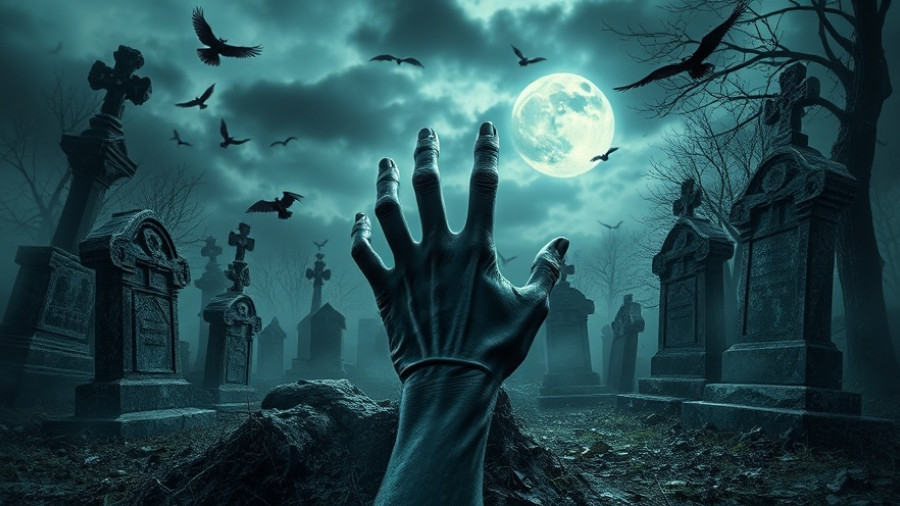
Understanding Horror Films and Anxiety Management
As a parent, you may be surprised to learn that horror films, often regarded as merely entertainment filled with jump scares and bloody scenes, may actually assist in managing uncertainty and anxiety. Recent theories suggest that engaging with fictional terrors can make us feel safer in our everyday lives. By watching horror films, we confront our fears in a controlled environment, which can lead to emotional resilience.
The Paradox of Horror: Why We Love to Be Scared
Understanding the appeal of horror is crucial when considering its psychological benefits. According to research published in Psychology Today, the thrill of fear prompts the brain to engage adaptive mechanisms that help us cope with real-life uncertainties. Horror films create a safe space for exploring themes of danger and survival, which may lead to feelings of triumph over anxiety when we see the credits roll. The paradox lies in our tendency to gravitate toward fear-inducing content, which many psychologists describe as an essential part of human experience.
Movie Night: Bonding Through Scary Films
For families, especially parents looking for engaging activities with their children, watching a horror film can provide more than just a thrill. It can be a unique bonding experience. By navigating fear together, family members can discuss their emotions afterward, fostering open communication about real fears and anxiety they may face day to day. This shared experience might even enhance family dynamics and teach valuable emotional regulation skills.
Emotional and Psychological Benefits of Horror
Further studies show that watching horror films can correlate with better emotional resilience. For instance, during the COVID-19 pandemic, research found that regular viewers of horror films were more likely to feel they could manage stress effectively. This suggests that horror films do more than entertain; they offer viewers a training ground for facing real-world challenges.
The Future of Horror in a Changing Society
Given the uncertain times we live in, horror's cultural significance appears to be on the rise. The themes explored in contemporary horror films often reflect societal anxieties, including technological fears and global crises. As parents, being aware of these trends could encourage more thoughtful viewing choices that resonate with our children's lives and the challenges they face.
Empowering Children Through Controlled Fear
Introducing children to controlled scares can be beneficial—encouraging them to differentiate between fiction and reality. Projects like MindLight, where interactions with scary elements in a game are paired with techniques to manage anxiety, demonstrate how horror can be integrated into therapeutic contexts. This type of exposure may help children build confidence in managing their own fears, making horror not just a genre but a tool for empowerment.
In conclusion, while horror films may seem like an unlikely ally in navigating life's uncertainties, they present an opportunity for parents and children to confront fears, enhance emotional communication, and build resilience together. So for your next family movie night, don’t shy away from the spine-chilling selections available; your bond may grow stronger through the shared experience of fear! As you embark on this journey into horror, remember to discuss your family's thoughts and feelings afterward, creating a space for valuable conversations.
 Add Row
Add Row  Add
Add 




Write A Comment